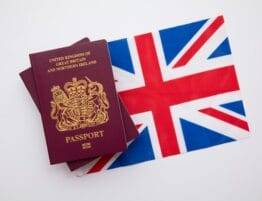
While the Graduate visa and the Graduate Trainee Visa may sound similar, they both serve quite different purposes. Where the Graduate visa is aimed at international students in the UK who wish to stay longer and find work once they graduate, the Graduate Trainee visa is part of the Global Business Mobility scheme and enables overseas nationals on a graduate trainee programme to work for a branch or subsidiary of their employer in the UK. In this article, we will look closer at both the Graduate Visa and the Graduate Trainee Visa to determine which is best for your needs.
What are the benefits of the Graduate Visa and the Graduate Trainee Visa?
The benefits attached to the Graduate Visa and the Graduate Trainee Visa immigration routes are quite different. The UK Graduate visa allows holders to:
- stay for up to 2 years
- look for work
- work for any employer (with the exception of working as a professional sportsperson), and
- be self-employed
The UK Graduate Trainee visa allows holders to:
- stay for up to 12 months
- work, but only for their sponsor and in the specific role shown on their Certificate of Sponsorship, and
- study
In addition, both visas allow holders to undertake voluntary work, live with their dependant partner and children, and travel to and from the UK freely.
Who qualifies for a Graduate Visa and the Graduate Trainee Visa?
The eligibility criteria for the Graduate Visa and the Graduate Trainee Visa also differ considerably, as summarised below:
| Graduate Visa | Graduate Trainee Visa | |
|---|---|---|
| Job offer required? | No | Yes |
| Main requirements | Must currently hold a UK Student visa Must have recently completed a UK bachelor’s degree, postgraduate degree or another eligible course for a minimum period of time |
Must be on a graduate training programme with an overseas employer and have been employed by them for at least 3 months. The overseas employer must have a branch or subsidiary in the UK and hold a sponsor licence. Must have a job on the list of eligible occupations and must receive a salary of £23,100 per year or more – or 70% of the ‘going rate’ for your job – whichever is higher. |
| Financial requirements | Application fee: £715 Pay the healthcare surcharge of £624 per person per year |
Application fee: £259 Pay the healthcare surcharge of £624 per person per year Have at least £1,270 in savings |
Can the Graduate visa and the Graduate Trainee visa be extended?
Unfortunately, neither visa can be further extended, meaning that Graduate visa and Graduate Trainee visa holders must switch to another visa type if they wish to stay longer or settle in the UK. The most popular visa routes for those who wish to stay longer in the UK include the skilled worker visa and the spouse/partner visa under the family route. If you wish to stay longer in the UK with a view to remaining permanently, it is important to select a visa that allows you to qualify for indefinite leave to remain (ILR). In most cases, you will be able to apply for ILR after 5 years of continuous residence in the UK and then British citizenship after a further 12 months.
Final words
For those who have recently completed their studies, the UK offers two extremely attractive immigration routes for UK and overseas graduates who wish to work in the UK. Both visas allow holders to bring their dependant family members to the UK and hence provide an excellent stepping stone to establishing a new life here.
Garth Coates is a leading niche immigration firm based in the heart of London, specialising in all forms of personal and business immigration, including visas, global mobility, sponsorship and compliance, settlement, and citizenship. To discuss your Graduate visa and Graduate Trainee visa application, please contact one of our friendly and knowledgeable immigration Solicitors on Tel: +44 (0)20 7799 1600 or by completing our online contact form









